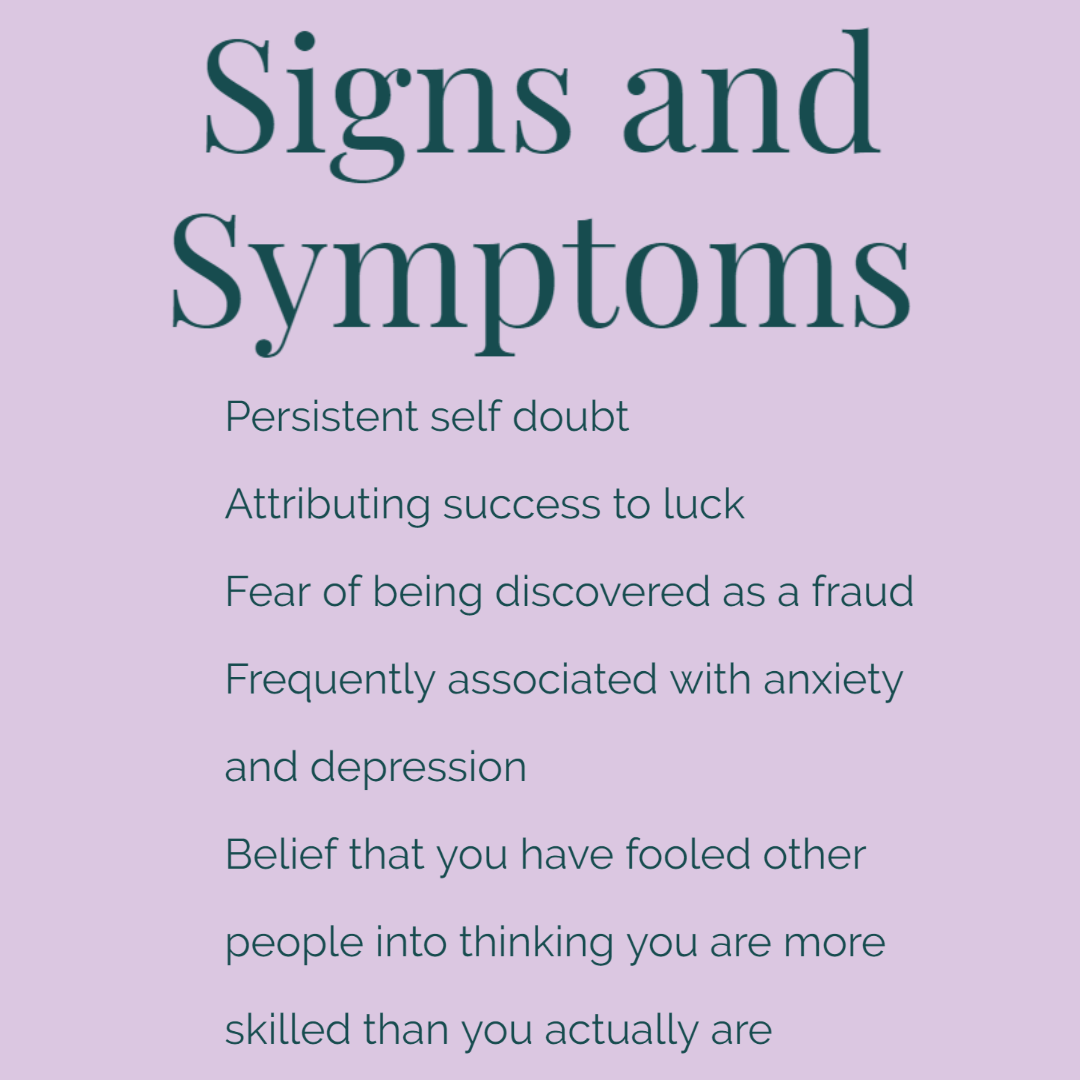
Imposter syndrome refers to the persistent doubts a person experiences about their capabilities and skills, despite objective evidence of their achievements. Individuals suffering from imposter syndrome often perceive themselves as frauds and believe they are fooling others into thinking they are more competent than they truly are. Although it was initially identified in high-achieving professional women by psychologists Suzanne Imes and Pauline Rose Clance in 1978, recent studies have shown that it is common among both men and women in various fields. While it is not classified as a disorder, it affects nearly 70% of individuals at some point in their lives.
Signs and Symptoms:
Imposter syndrome is characterized by intense self-doubt. Those experiencing it often attribute their success to external factors like luck, charm, or others’ misjudgment, rather than acknowledging their own abilities and hard work. They live in constant fear of being exposed as frauds, leading to feelings of isolation, loneliness, and distress. Imposter syndrome frequently coexists with conditions such as trait anxiety, generalized anxiety disorder, social anxiety disorder, and depression.
Overcoming Imposter Syndrome:
Imposter syndrome is rooted in deep emotions and beliefs. It can stem from a family environment that emphasized achievement and success, where parents alternated between overpraise and criticism. Societal pressures, academic stress, and measuring self-worth based on achievements can also trigger imposter syndrome.
To overcome imposter syndrome, it is crucial to accept your achievements and successes as a result of your own hard work and dedication. Creating reminders of your accomplishments and separating your feelings about them from reality can be helpful. Recognizing that you are not alone, as imposter syndrome tends to isolate individuals, is another important step. Seeking counseling can provide a safe space to explore these feelings of isolation and unworthiness. A counselor can help identify the origins of these feelings and utilize cognitive behavioral therapy techniques to challenge and modify negative thoughts. It is essential to understand that you do not have to live with these feelings and thoughts, and they do not define your worth or control you.
By addressing imposter syndrome, you can gain a healthier perspective on your abilities, achievements, and self-worth, leading to increased confidence and overall well-being.

